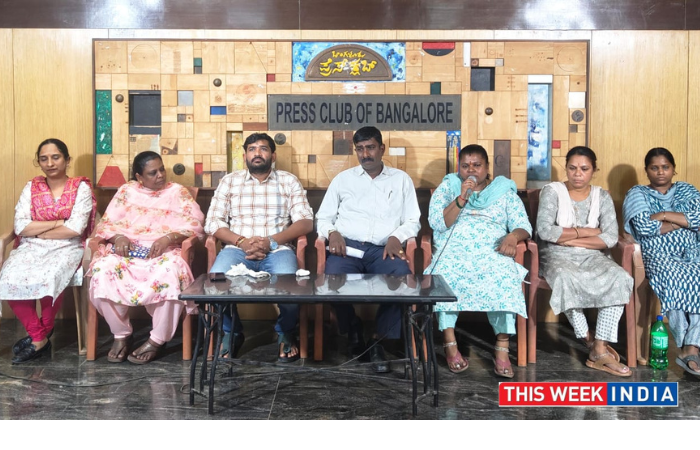Organise roundtable discussion titled “Retail 4.0: Revolutionizing Retail through Online & Offline Partnership” to spotlight importance of leveraging Retail 4.0
- Key representation from retailers, policymakers, academia, and consumer groups provides a well-rounded perspective on Retail 4.0
- Amazon had signed an MoU with the FTCCI in 2022, and in the last one-year the FTCCI and Amazon have trained and helped digitize approximately 500 sellers from Tier 2 & Tier 3 cities of Telangana
Hyderabad, 24 March 2023: The adoption of Retail 4.0 has the potential to contribute significantly to India’s goal of achieving a US$5 trillion digital economy by 2025, with the retail sector playing a telling role. Acknowledging the power that Retail 4.0 holds to transform the sector and the postive impacts it can accrue for the businesses in the country, especially MSMEs; Amazon India and The Federation of Telangana Chambers of Commerce and Industry (FTCCI) held a roundtable discussion titled “Retail 4.0: Revolutionizing Retail through Online & Offline Partnership” in Hyderabad in a Hotel in Banjara Hills.
Divided into two pertinent sessions viz. “Conceptualizing Retail 4.0 in a post-pandemic world” and “The Promise of Retail 4.0 for MSMEs”, the discussion brought together policymakers, academia, consumer interest groups and retailers at a single forum.
Key dignitaries such as Mr. Jayesh Ranjan, Principal Secretary, Govt of Telangana; Dr E. Vishnu Vardhan Reddy, Special Secretary, Government of Telangana; Mr. Kshitij Jain, Director, External Fulfilment, Amazon India; Mr. Udai Singh Mehta, Head, Public Policy (Ecommerce), Amazon India, and Mr. Anil Agarwal, FTCCI President actively participated in the roundtable.
As the Indian consumer is undergoing a gradual yet distinct transformation on several fronts, expectations for convenience, personalized experiences, trend-focused shopping, multi-channel engagement is becoming the norm. Retailers need to continually evolve and adapt to address these challenges. Retail 4.0 technologies, including cloud computing, artificial intelligence, robotics, and the internet of things, can play a central in stimulating cost-efficient innovations to help MSMEs win in this dynamic environment. Hence, digital adoption becomes necessary to stay ahead and harness potential for growth for MSMEs; especially in tier II, tier III cities, and other smaller towns.
“The challenges that small businesses (SMBs) face while selling online are distinct from others. They cannot be solved without adequate support and hand holding from marketplaces like Amazon and industry bodies like the FTCCI. I urge these parties to continue thinking about ways to make selling online easier for SMBs – whether it’s through automation of processes, offering support with compliance and pricing, or providing training on aspects like branding, imaging & cataloguing. I’d also like to congratulate Amazon and FTCCI for seeing through their partnership over the past year, helping train and onboard nearly 500 sellers from Tier II & III cities in Telangana.” Said Jayesh Ranjan, Principal Secretary, Industries & Commerce and Information Technology, Government of Telangana
Dr E. Vishnu Vardhan Reddy, Special Secretary, Department of Industries and Commerce, Government of Telangana said “Telangana has emerged as a leader in the adoption of technology, with a rapidly increasing consumer base and high rates of internet and mobile penetration. The government has demonstrated strong intent to promote the use of emerging technologies in areas like retail, logistics and supply chain management. We are also working closely with MSMEs, helping upskill them to unlock the purchase potential of the next billion consumers. While policy support is a key driver to enact change, an ecosystem approach that involves working with players like Amazon and industry bodies is necessary to scale the positive outcomes of technology for businesses across the state and the country. .”
Mr. Udai Singh Mehta, Head, Public Policy (Ecommerce), Amazon India said “Through initiatives such as ‘Local Shops on Amazon,’ Amazon has been a significant catalyst for Retail 4.0. This program enables sellers to list their brick-and-mortar stores on Amazon’s marketplace and connect with a larger pool of consumers in their local area. By supplementing their existing foot traffic with a digital presence on Amazon.in, offline retailers and neighborhood stores are availing themselves of the benefits of e-commerce. For customers, the program offers the safety and convenience of online shopping while also preserving the familiarity and trust of their preferred local stores. “While it will be a game changer, Retail 4.0 will need joint effort of sellers, seller associations and the industry, while the government must play role of a facilitator. There is a need for a progressive, facilitative policy, that does not draw an artificial distinction between online and offline commerce. The policy should view Ecommerce as a vehicle for the growth of MSMEs and encourage upskilling of MSMEs in partnership with Ecommerce players. This can help us together achieve India’s goal to become a 5 trillion-dollar economy.”
Mr. Anil Agarwal, President, Federation of Telangana Chambers of Commerce and Industry (FTCCI) said, “Retail 4.0 is the fourth industrial revolution, bringing together offline and online retail to create customer-centric shopping experiences. With rising demands and varied expectations of Indian consumers, brick and mortar stores today fall short of meeting their needs. Technology can play an essential role in helping these businesses better serve customers, expanding their reach and facilitating direct deliveries through e-commerce. We are pleased to collaborate with players like Amazon who focus on digitization of local stores- helping them capture a larger market share and supporting their growth.”
The roundtable discussion marks the successful completion of Amazon and FTCCI’s initiative to enable the small businesses grow and benefit from ecommerce. As a part of this initiative, approx. 500 small businesses from tier-2 and tier-3 regions were trained on leveraging ecommerce for enhanced revenues and greater reach.









